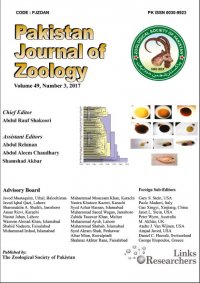Female Preferences for Call Properties of Giant Spiny Frog (Quasipaa spinosa)
Female Preferences for Call Properties of Giant Spiny Frog (Quasipaa spinosa)
Yanyan Yu1,2,3, Yizhong Hu1, Qipeng Zhang1, Rongquan Zheng1,4,*, Bing Shen1, Shenshen Kong1 and Ke Li1
ABSTRACT
To share on other social networks, click on any share button. What are these?









